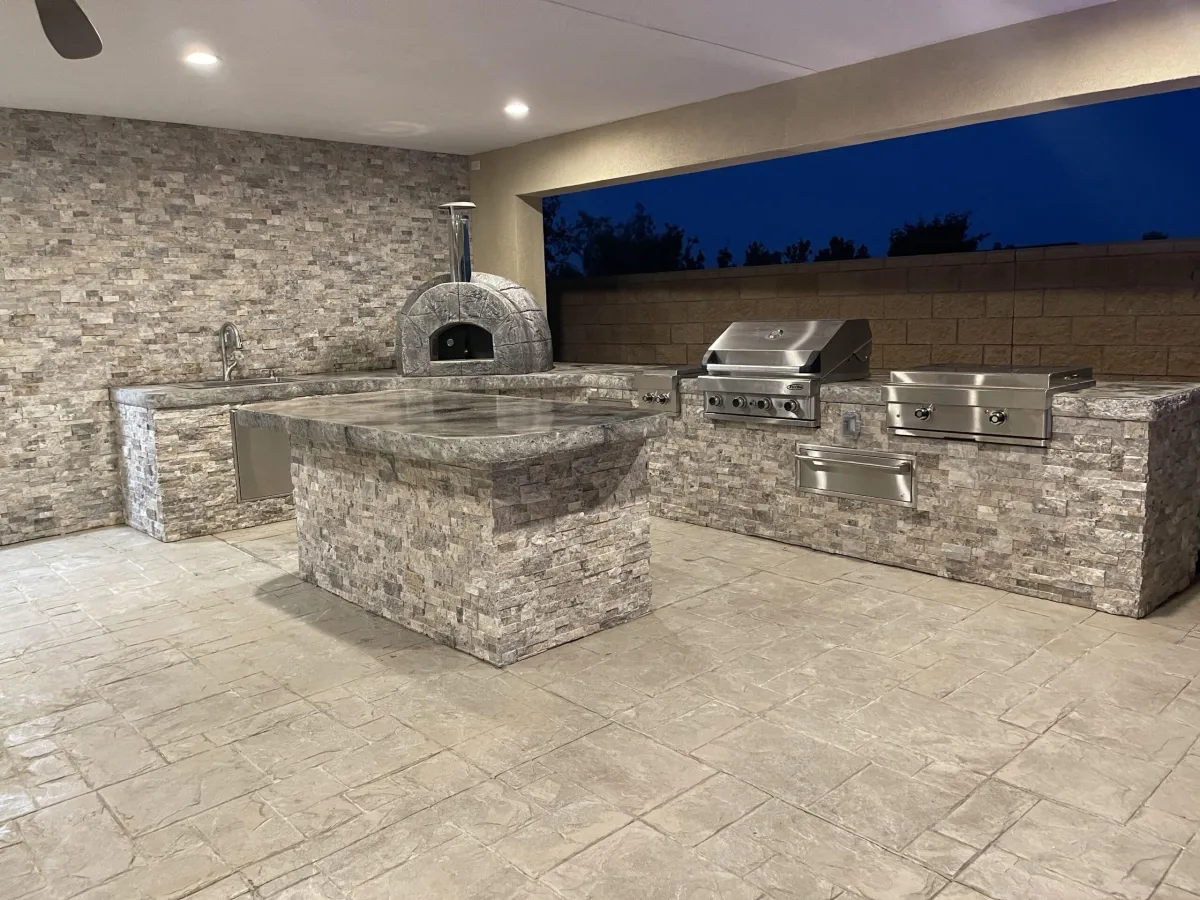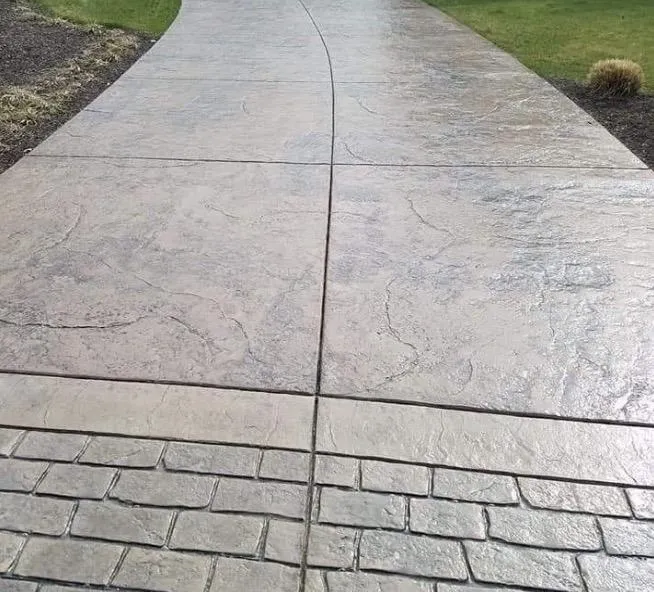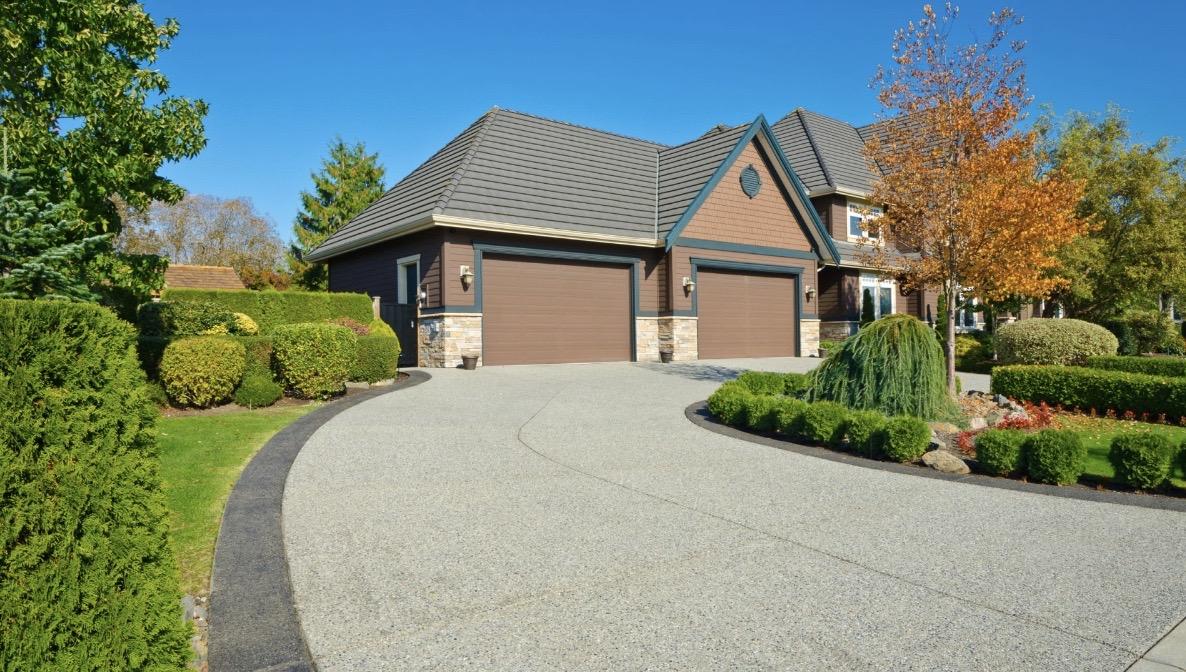Articles > Library

Understanding the Importance of Ventilation in Outdoor Kitchens
Understanding the Importance of Ventilation in Outdoor Kitchens
Outdoor kitchens have become increasingly popular among homeowners, offering a unique and convenient way to enjoy cooking and entertaining outdoors. However, when it comes to designing an outdoor kitchen, ventilation is often overlooked. Many people assume that since outdoor kitchens are open-air environments, ventilation is not necessary. However, proper ventilation is essential for safety and functionality, especially when it comes to gas-powered appliances like grills. In this article, we'll explore why ventilation is crucial in outdoor kitchens and how it can prevent potential safety hazards.
Why Ventilation is Essential
1. Safety Concerns: One of the primary reasons why ventilation is essential in outdoor kitchens is safety. Gas-powered appliances, such as propane grills, produce combustion byproducts like carbon monoxide, which can be harmful if not properly ventilated. Without adequate ventilation, these gases can accumulate in the cooking area, posing a serious health risk to anyone nearby.
2. Preventing Gas Build-Up: Proper ventilation helps prevent the build-up of gas, particularly propane, which is heavier than air and tends to pool in low-lying areas. If ventilation is only located at the top of an outdoor kitchen island, propane gas can accumulate at the bottom, creating a potentially hazardous situation. In extreme cases, this gas build-up can lead to explosions or fires.
3. Improving Air Quality: In addition to safety concerns, ventilation also plays a role in improving air quality in the outdoor kitchen. Smoke, grease, and other cooking byproducts can create unpleasant odors and affect the overall comfort of the cooking area. Ventilation helps remove these pollutants, ensuring a more enjoyable cooking experience.
Placement of Ventilation
When it comes to outdoor kitchen ventilation, placement is crucial. For gas-powered appliances like grills, ventilation should be located at the bottom of the kitchen island to allow for proper airflow and gas dispersion. This prevents gas build-up and reduces the risk of accidents.
Additionally, it's essential to ensure that ventilation systems are properly installed and maintained to function effectively. Regular cleaning and inspection of ventilation ducts and fans are necessary to prevent blockages and ensure optimal airflow.
Safety Measures
To minimize the risk of gas-related accidents in outdoor kitchens, homeowners should follow these safety measures:
1. Install Carbon Monoxide Detectors: Carbon monoxide detectors should be installed near gas-powered appliances to alert occupants to the presence of dangerous gases.
2. Regular Inspections: Perform regular inspections of ventilation systems to ensure they are functioning correctly and free of obstructions.
3. Propane Cylinder Storage: Store propane cylinders in a well-ventilated outdoor area away from heat sources and combustible materials.
4. Professional Installation: Gas-powered appliances should be installed by qualified professionals to ensure compliance with safety standards and regulations.
Learn more: https://concreteessentialsco.com/outdoor-kitchen
Conclusion
In conclusion, ventilation is essential in outdoor kitchens to ensure safety, prevent gas build-up, and improve air quality. Proper placement and maintenance of ventilation systems are crucial to mitigate the risk of accidents and create a safe cooking environment. By understanding the importance of ventilation and following recommended safety measures, homeowners can enjoy cooking and entertaining outdoors with peace of mind. Whether you're designing a new outdoor kitchen or updating an existing one, prioritizing ventilation should be a top consideration for a safe and enjoyable outdoor cooking experience.
More Articles


Contact Us
Service Hours
Social Media
Articles > Library

Understanding the Importance of Ventilation in Outdoor Kitchens
Understanding the Importance of Ventilation in Outdoor Kitchens
Outdoor kitchens have become increasingly popular among homeowners, offering a unique and convenient way to enjoy cooking and entertaining outdoors. However, when it comes to designing an outdoor kitchen, ventilation is often overlooked. Many people assume that since outdoor kitchens are open-air environments, ventilation is not necessary. However, proper ventilation is essential for safety and functionality, especially when it comes to gas-powered appliances like grills. In this article, we'll explore why ventilation is crucial in outdoor kitchens and how it can prevent potential safety hazards.
Why Ventilation is Essential
1. Safety Concerns: One of the primary reasons why ventilation is essential in outdoor kitchens is safety. Gas-powered appliances, such as propane grills, produce combustion byproducts like carbon monoxide, which can be harmful if not properly ventilated. Without adequate ventilation, these gases can accumulate in the cooking area, posing a serious health risk to anyone nearby.
2. Preventing Gas Build-Up: Proper ventilation helps prevent the build-up of gas, particularly propane, which is heavier than air and tends to pool in low-lying areas. If ventilation is only located at the top of an outdoor kitchen island, propane gas can accumulate at the bottom, creating a potentially hazardous situation. In extreme cases, this gas build-up can lead to explosions or fires.
3. Improving Air Quality: In addition to safety concerns, ventilation also plays a role in improving air quality in the outdoor kitchen. Smoke, grease, and other cooking byproducts can create unpleasant odors and affect the overall comfort of the cooking area. Ventilation helps remove these pollutants, ensuring a more enjoyable cooking experience.
Placement of Ventilation
When it comes to outdoor kitchen ventilation, placement is crucial. For gas-powered appliances like grills, ventilation should be located at the bottom of the kitchen island to allow for proper airflow and gas dispersion. This prevents gas build-up and reduces the risk of accidents.
Additionally, it's essential to ensure that ventilation systems are properly installed and maintained to function effectively. Regular cleaning and inspection of ventilation ducts and fans are necessary to prevent blockages and ensure optimal airflow.
Safety Measures
To minimize the risk of gas-related accidents in outdoor kitchens, homeowners should follow these safety measures:
1. Install Carbon Monoxide Detectors: Carbon monoxide detectors should be installed near gas-powered appliances to alert occupants to the presence of dangerous gases.
2. Regular Inspections: Perform regular inspections of ventilation systems to ensure they are functioning correctly and free of obstructions.
3. Propane Cylinder Storage: Store propane cylinders in a well-ventilated outdoor area away from heat sources and combustible materials.
4. Professional Installation: Gas-powered appliances should be installed by qualified professionals to ensure compliance with safety standards and regulations.
Learn more: https://concreteessentialsco.com/outdoor-kitchen
Conclusion
In conclusion, ventilation is essential in outdoor kitchens to ensure safety, prevent gas build-up, and improve air quality. Proper placement and maintenance of ventilation systems are crucial to mitigate the risk of accidents and create a safe cooking environment. By understanding the importance of ventilation and following recommended safety measures, homeowners can enjoy cooking and entertaining outdoors with peace of mind. Whether you're designing a new outdoor kitchen or updating an existing one, prioritizing ventilation should be a top consideration for a safe and enjoyable outdoor cooking experience.
More Articles

Contact Us
760-512-8091
16790 Danbury ave
Hesperia, CA, 92345
Service Hours
Mon-Fri: 8am-5pm
Sat-Sun: 8am-5pm
Social Media






